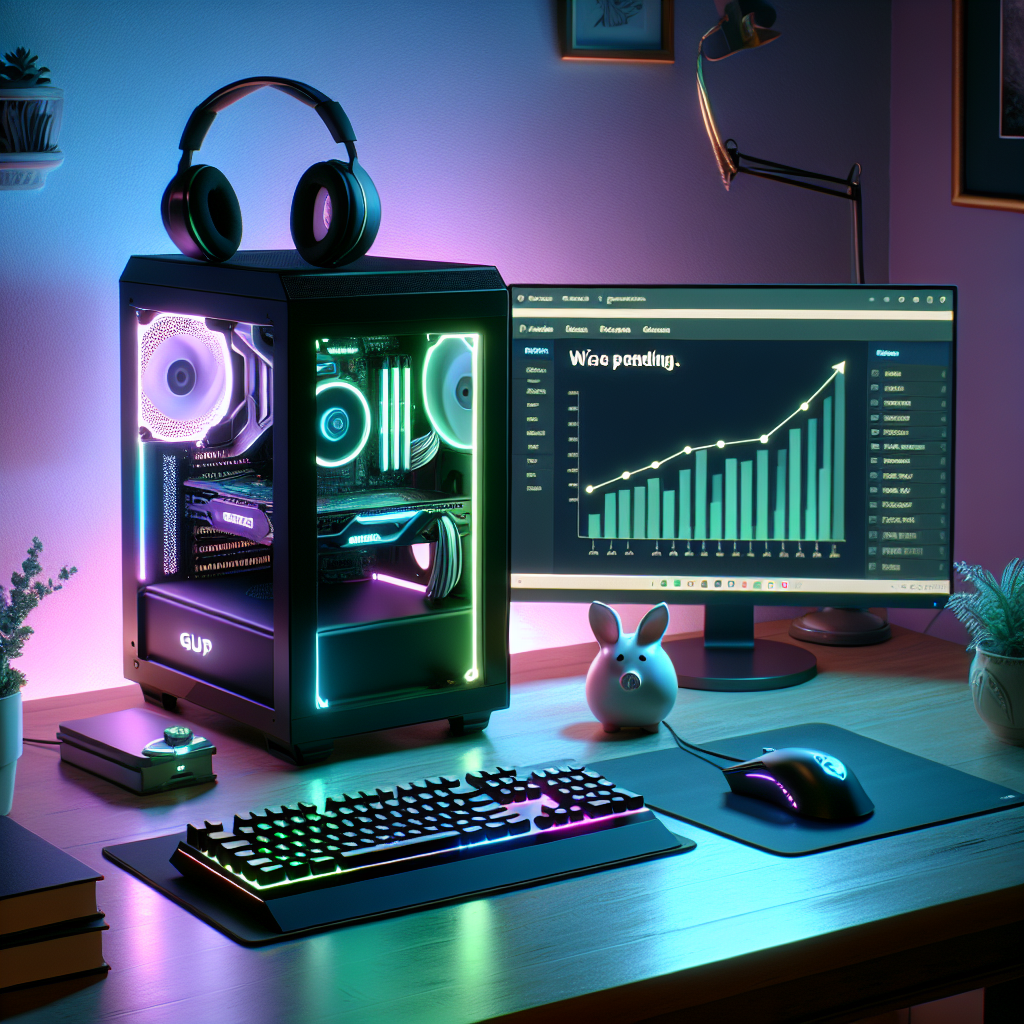Don’t Overspend: How to Choose the Right Budget Gaming PC
In the rapidly evolving world of gaming, staying within a budget while upgrading or purchasing a gaming PC can feel like walking a tightrope. With enticing graphics, high refresh rates, and advanced gaming features continuously pushing prices upward, it’s easy to get lost in a sea of options and overspend. However, with careful planning and a clear understanding of your needs, you can build or buy a budget-friendly gaming PC that performs well without compromising your financial stability. Here’s how to make informed decisions that keep your wallet intact while still delivering an impressive gaming experience.
1. Define Your Gaming Needs
Before you embark on the journey of buying or building a gaming PC, it’s crucial to define your gaming needs:
- Game Types: What genres do you prefer? Casual games, AAA titles, or eSports? Different games have varying system requirements.
- Resolution: Are you targeting 1080p, 1440p, or 4K gaming? Higher resolutions demand more powerful hardware.
- Performance: Consider the frame rates you aim for. For competitive gaming, higher frame rates are essential, while single-player experiences may allow for lower frame rates.
By clearly identifying these aspects, you can prioritize components that align with your gaming preferences without splurging on unnecessary features.
2. Set a Realistic Budget
Budgeting is a foundational step in avoiding overspending. Determine how much you can afford to spend without compromising your daily expenses. When setting a budget:
- Allocate Funds Wisely: Decide how much to spend on each component, such as CPU, GPU, RAM, and storage.
- Consider Upgradability: Invest slightly more in components that are upgradable in the future, allowing your PC to grow with new technology without a complete overhaul.
A solid budget helps you navigate the extensive market without losing sight of your financial goals.
3. Focus on Core Components
When choosing a budget gaming PC, not all components are created equal. Focusing on the core components that will impact your performance most is key:
-
Graphics Card (GPU): The GPU is the heart of any gaming rig. Prices can vary significantly, so research mid-range options like NVIDIA GeForce GTX 1660 or AMD Radeon RX 6500 XT that provide good performance without breaking the bank.
-
Processor (CPU): Select a CPU that complements your GPU. AMD Ryzen or Intel Core i5 processors offer excellent value for gamers.
-
Memory (RAM): 16GB of RAM is generally enough for gaming today. Look for budget-friendly brands that don’t compromise on performance.
- Storage: An SSD provides faster load times and is often recommended. If you’re tight on budget, consider combining a smaller SSD (for your OS and favorite games) with a larger HDD for general storage.
4. Consider Prebuilt vs. Custom Builds
Both options have their merits and drawbacks:
-
Prebuilt Systems: These are convenient and often come with a warranty, but they might charge a premium. Look for reputable brands known for value, such as HP Omen, Dell G5, or custom builders like iBUYPOWER or CyberPowerPC.
- Custom Builds: Building your own PC can save you money and offer greater flexibility. Numerous online resources can guide you through the process. However, it requires research and some technical know-how.
Make a choice based on your comfort level, budget, and desired performance.
5. Watch for Deals and Discounts
When it comes to purchasing your gaming PC or components, timing is everything:
-
Sales Events: Take advantage of sales events like Black Friday, Cyber Monday, or back-to-school sales when prices can drop significantly.
-
Refurbished or Open-Box Items: Many retailers offer refurbished or open-box items at reduced prices which can be just as reliable as new ones.
- Price Tracking Tools: Use online tools and websites that track price fluctuations, ensuring you buy at the right time.
6. Don’t Neglect Peripherals
While the main focus is often on the PC itself, peripherals such as monitors, keyboards, and mice play a significant role in your gaming experience.
-
Monitor: A good monitor can enhance visuals and performance. Opt for 1080p monitors with a refresh rate of 60Hz or more for smoother gameplay.
- Gaming Mouse and Keyboard: You don’t need to overspend on these, but do invest in ergonomics and functionality based on your gaming style.
By integrating well-thought-out peripherals, your gaming experience can be elevated without a drastic increase in overall costs.
Conclusion
Choosing the right budget gaming PC requires a blend of understanding your gaming needs, setting realistic budgets, selecting core components wisely, and timing your purchases. With patience and thorough research, you can find a system that not only delivers engaging gaming experiences but also keeps your finances in check. Remember, the goal is to enjoy gaming without the burden of overspending. By following these guidelines, you can navigate the gaming PC market with confidence and emerge successful. Happy gaming!




